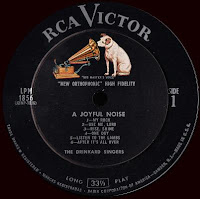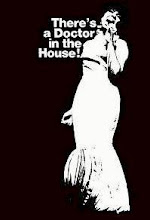
In June 1964, Sain had Fontella audition at Chess Records, and this eventually resulted in a contract. As is known, the first Chess (actually Checker) recordings issued in late '64 and spring '65 were two singles by Fontella Bass together with Bobby McClure. The first single (A-side »Don't Mess Up A Good Thing«) was an unexpected success and reached #5 r&b; Oliver Sain and his Orchestra was still involved at this point.
However, Fontella hit it big with her first solo effort: »Soul Of The Man« / »Rescue Me« (Checker # 1120), released in September 1965. Today, »Rescue Me« ranks as one of the most popular r&b classics of the '60s. At the time, however, »Rescue Me« was at first not per- ceived as the charting song of that single. Billboard in the Sept. 4, 1965, issue listed »Rescue Me« as the flipside and only reviewed »Soul Of The Man«. Now, this song was penned by noone else but Oliver Sain; you can hear it below in the album version.
The extraordinary success of »Rescue Me« (r&b #1, pop #4), making it one of the most popular tunes of winter '65, prompted Chess to rush an album out, looking for the quick buck in the wake of Fontella's stellar rise in the charts. Now, this album was recorded in Chicago's Ter Mar Studios in November 1965 and released some three months later in Feb. 1966. I'm speaking of Checker LP # 2997 The 'New' Look, of which I'm lucky enough to possess the original mono pressing, with the rare red and black »checkered« label (this label was used for only about five Checker LPs).
If ever there was an album built around one hit then this is it. Without any pretence at putting it somewhat diplomatically, the notes on the back cover of the LP (written by Marshall Paul of Chess) state this fact quite clearly:
One Saturday, in August, 1965, Fontella Bass was sitting in the Chess rehear- sal studio along with two of Chess's top writer-producers, Carl Smith and Reynard Miner. They were 'fooling around' with some new material when Phil Wright, one of the Chess arrangers, happened to drop in, and the result of this four-way jam session was the birth and finalization of Fontella's top hit, "Rescue Me".If you wanted to have an album out fast, this was the obvious thing to do. Just look for proven standards that are easy to come by, put up some new arrangements and on you go. In Fontella's case, her first album thus contained the two songs of her most successful single (»Rescue Me« and »Soul Of The Man«) plus ten bonus songs, as it were. Among these, we have Maxine Brown's »Oh No Not My Baby«, Martha & The Vandellas' »Come And Get These Memories«, Ruby & The Romantics' »Our Day Will Come«, Carla Thomas's »Gee Whiz« and Barbara George's »I Know (You Don't Love Me No More)«. All of them nice songs, certainly, and rigorously on the pop-side of r&b. Fontella performs these tunes nicely, and they've been nicely arranged as well, even though I wouldn't say that Fontella's cover versions justify the album's title A New Look because, after all, the tunes sound in all cases very similar to the origi- nal versions. Fontella's voice does make a difference but the instrumental arrange- ments are conventional throughout and the arrangers didn't dare to really come up with truly novelty versions. However, the LP proved a success, reaching #6 of the top selling r&b albums charts in April 1966. In the US, the LP was sold with a whip- slinging Fontella on the cover (I don't know what the significance behind this is), while the UK issue actually shows a very beautiful, close-up portrait shot. Would that I had the UK issue as well!
When an artist has a hit single record, it is common practice in the record business to rush an album containing the hit tune into production. After the great success of "Rescue Me", it was decided that Fontella Bass should record an album. We took some of the great songs of the last few years and added Fontella's fantastic style along with the Chess Sound.
What is the Chess Sound? The Chess Sound is - Reynard Miner and Leonard Casten on piano, Maurice White on drums, Louis Satterfield on bass, Pete Cosey and Bryce Roberson on guitar, Sonny Thompson on organ, and Gene Barge as leader of the horn section, along with the production of Carl Smith and Reynard Miner under the supervision of A&R Director, Billy Davis, and Phil Wright's arrangements.
We knew that the combination of Fontella's great voice and soulful style with the fantastic Chess Sound that the above musicians, producers and arrangers make possible would jell into an 'out of sight' album.
[Note: Names as spelled on the original back cover]
 |
| Checker LP # 2997 (1966, mono) |
As said above, »Soul Of The Man« is an Oliver Sain-composition, so it's one of two »Fontella originals« on this album; »I'm A Woman« was penned by Leiber & Stoller and merely covered by Fontella. Yet both admirably performed ... listen:
Fontella Bass: »Soul Of The Man« / »I'm A Woman« from the Checker LP # 2997 (1966, mono):




















.jpg)









